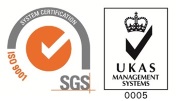News from TQC, Nottingham: Plastics - "sub-assembling adds value to counter low labour cost competition"
Explore the News & Careers Section
Explore the latest news from TQC and find out if there are career opportunities at the Nottingham headquarters.
featured in British Plastics & Rubber February 2004
As production of plastic mouldings moves evermore towards lower cost manufacturing bases, UK moulding companies are looking to add value to their product. The trend has grown significantly in the last decade, and is now at the heart of automobile manufacture, and is growing in other industries supplying technically complex products. This ranges from the addition of small mechanisms such as hinges and locks, plastic fluid handling components such as pipes and tanks, electrical assemblies, through to large moulded modules such as bumpers and cockpit assemblies.
In most of these cases, the moulding represents physically the bulk of the supply, but the company significantly adds value by assembling the mechanism with pins, springs, wires and fastenings, or, in the case of modules, assembles electrical wiring, instruments, lamps, sensors and trim parts. The benefit to the OEM is that assemblies can be efficiently put together and fully tested off line, fitting simply and effectively into the supply chain.
Systems to facilitate this value addition have been built by TQC for more than 25 years, covering automated assembly of inserts, fastening devices, electrical parts and other sub assemblies into mouldings. These have included robotic, indexing, rotary and pallet based assembly systems for plastic moulded assemblies, often involving some form of function, electrical or leak test. These have included both fully and semi automated systems.
Although it might seem logical to fully automate any system, says the company, it is often better to go semi automatic, particularly where dextrous handling or complex visual inspection is necessary. Much of what TQC supply to the automotive industry falls into this category, particularly when assembling large modules with a large number of individual build variations.
TQC’s range of assembly machines uses bar coded or downloaded build information to determine the make up of each individual module, and checks for presence and function as each part is assembled to the moulding. Correct build is assured, as the system does not release the assembly if any part is missing or does not function.
For more stories similar to this please visit the British Plastics & Rubber website at https://www.britishplastics.co.uk/
For enquiries:
For further information, please e-mail sales@tqc.co.uk
